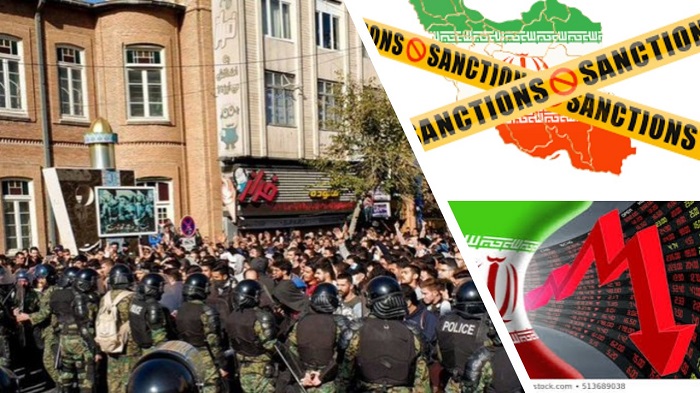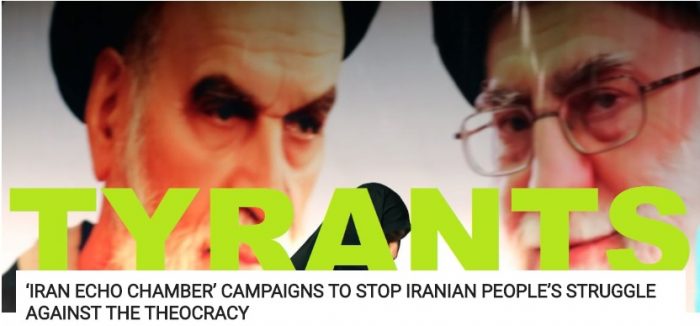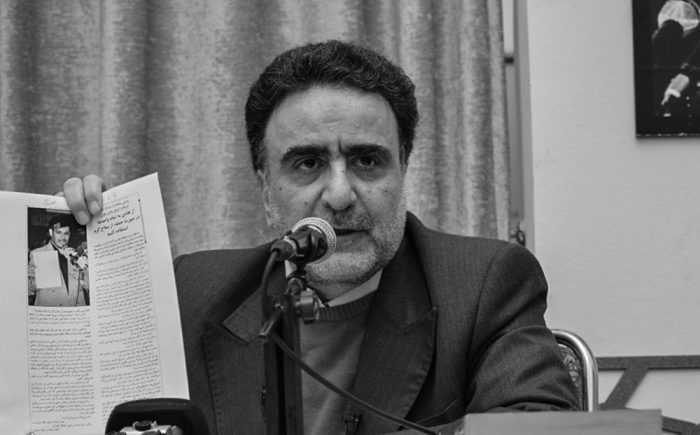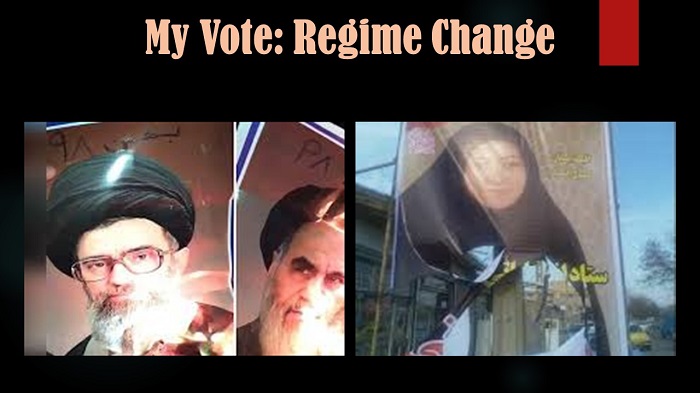
(NCRI) and (PMOI / MEK Iran): Iran Protests, sanctions, disaster economy, and low troop morale is crippling the mullahs’ regime.
This February marks the 42nd anniversary of the clerical regime’s rule in Iran. Government leaders typically use the occasion to create the illusion of popular support for the mullahs with a combination of mandatory military parades, laudatory speeches, and other excessive displays.
Velayat-e-Faqih, or absolute rule
The June presidential election seemed to be on everyone’s mind as the month began this year. Regime President Hassan Rouhani is set to finish his second term in office this year, and his “moderate” faction is in danger of losing power as Supreme Leader Ali Khameini uses Velayat-e-Faqih, or absolute rule, to tighten control by disqualifying moderates so that candidates from his hardliner faction can run unopposed.
In a busy thoroughfare in #Iran this week, a man risks his life to say what Iranian people had wanted with the 1979 revolution and want today: "Down with @khamenei_ir (sheikh), down with MONARCHY (shah), down with Appeasement, long live FREEDOM." @ABlinken @HouseForeign @JoeBiden https://t.co/EqNHs9Tllz
— Majid Sadeghpour (@MRSadeghpour) February 3, 2021
On February 1, Rouhani and members of his cabinet kicked off this year’s festivities with a visit to regime founder Ruhollah Khomeini’s tomb, where Rouhani gave a speech about the first Supreme Leader, which was quoted by the state-run Entekhab daily.
A Challenge to the Principle of Velayat-e-Faqih?
In his remarks, Rouhani referred to a speech Khomeini gave at Behesht-e Zahra in 1980, early in the regime’s history. He said: “[Khomeini] in that speech did not speak only of religious legitimacy. He even spoke about the acceptability and opinion of the people, about rationality and acceptability.”
These words appear to be directed at Khamenei. There are few descriptors that could be found in Khomeini’s speeches that could apply less to Khamenei. The statement goes right to the brink of questioning the principle of Velayat-e-Faqih.
Rouhani went on: “The way he [Khomeini] chose for us, the government he said I would appoint because the people trusted me, said I will appoint the government.
This speech was an important speech in Shiite ijtihad and political jurisprudence. He did not rely on his sharia rule, but on the opinion and vote of the people, he appointed the government.”
Here Rouhani is clearly alluding to Khamenei’s practice of disqualifying candidates for office. He stresses that the clerics were not intended to choose the government.
#Iran’s Power Struggle on Khomeini’s Anniversary https://t.co/pK5ES7j5iU via @Iran_Focus
— Iran Focus (@Iran_Focus) February 8, 2021
A “Moderate”
Rouhani went on to pitch his moderate platform, saying, “He pointed out that the votes of yesterday’s generation could not be the basis for today’s generation. At every stage, people must choose the system they want with their votes.”
This is the extent of Rouhani’s moderation. He talks about bringing Iran to the future, but his own speech acknowledges that Iran was better four decades ago. He has neither the power nor the desire to change the system.

(NCRI) and (PMOI / MEK Iran): This is the extent of Rouhani’s moderation. He talks about bringing Iran to the future, but his own speech acknowledges that Iran was better four decades ago. He has neither the power nor the desire to change the system.

(NCRI) and (PMOI / MEK Iran): Mostafa Tajzadeh, former deputy of the Iranian regime’s interior ministry during Mohammad Khatami’s Presidency, revealing the crimes of the regime during the so-called moderate President.
Election Boycott Concerns
Rouhani dispensed with the idea that his speech was about the Revolution when he brazenly begged for people to vote in the election.
“We will present a passionate competitive election to the people. If 70 percent and a few of the people came to the polls, that [Khomeini’s] charter would have continued,” he said.
Last February, the People’s Mojahedin Organization of Iran (PMOI / MEK Iran), organized a popular boycott movement of the regime’s parliamentary elections. Voter turnout was the lowest in the regime’s history.
The National Council of Resistance of Iran (NCRI) President-elect Maryam Rajavi stated that the people of Iran already voted when they called for the end of the regime. Rouhani appears to be worried that the same thing will happen in June and that he will not stand a chance at reelection.

(NCRI) and (PMOI / MEK Iran): Iranian boycotted the sham election in Iran, saying NO to religious dictatorship
The MEK believes that the Presidential election is essentially meaningless as long as the mullahs are in power. If clerics can disqualify any candidate and leave the other faction’s candidate to run unopposed, what is the point of an election? The clerics have the power in Iran, and they are appointed. There can never be reform in Iran until the people have the power and that cannot happen until the regime is overthrown.
Down with the principle of Velayat-e Faqih

(NCRI) and (PMOI / MEK Iran): Tens of thousands of Iranians participated in demonstrations on December 27, 2009, the holy day of Ashura. Crowds chanted “Down with dictator,” “Khamenei is a murderer,” and “Down with the principle of Velayat-e Faqih.” The protests turned violent in Tehran when police fired gunshots into the crowds. Others were seriously wounded when state security forces deliberately drove trucks over protestors.
and People’s Mojahedin Organization of Iran – MEK IRAN – YouTube
